ASTANA – German Chancellor Olaf Scholz concluded his official visit to Kazakhstan on Sept. 18, the first visit of the German Chancellor in decades. In two days of his visit, Scholz met with President of Kazakhstan Kassym-Jomart Tokayev, participated in a Kazakh-German business forum, and in the meeting with five Central Asian leaders.
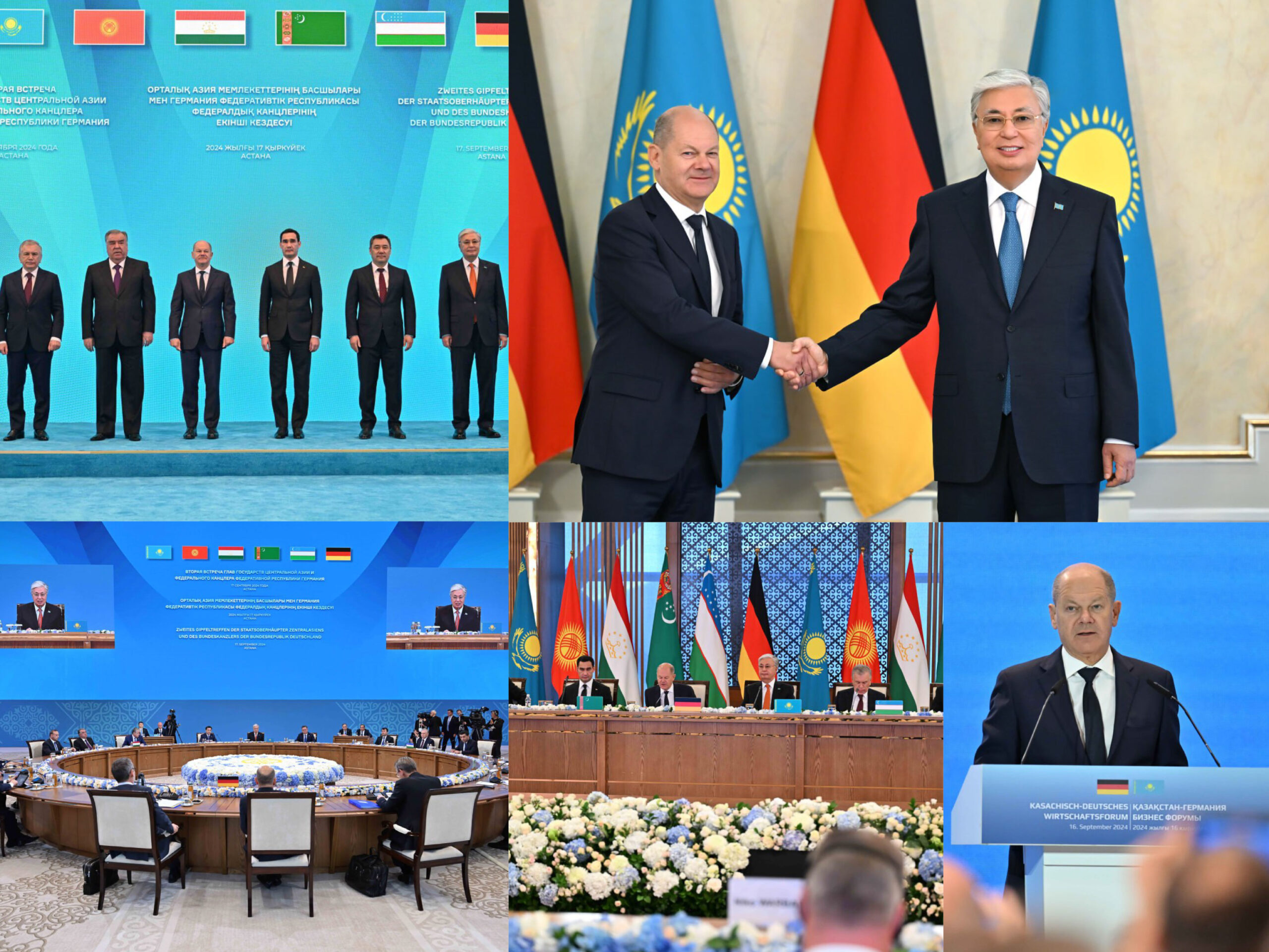
German Chancellor Olaf Scholz concluded his official visit to Kazakhstan on Sept. 18. Scholz met with President of Kazakhstan Kassym-Jomart Tokayev, participated in a Kazakh-German business forum, and in the meeting with five Central Asian leaders. Photo credit: Akorda
Growing frequency of high-level contacts
This visit not only solidified bilateral relations between Kazakhstan and Germany but also signaled Germany’s growing interest in engaging with Central Asia as a whole.
Scholz, who succeeded Angela Merkel as German Chancellor in December 2021, was the first chancellor to visit Kazakhstan in 14 years. Before his visit to Kazakhstan, he was in Uzbekistan, making him the first chancellor to visit Uzbekistan in 22 years.
While in Astana, he met with President Tokayev, who described Germany as one of Kazakhstan’s major European “and even global partners.”
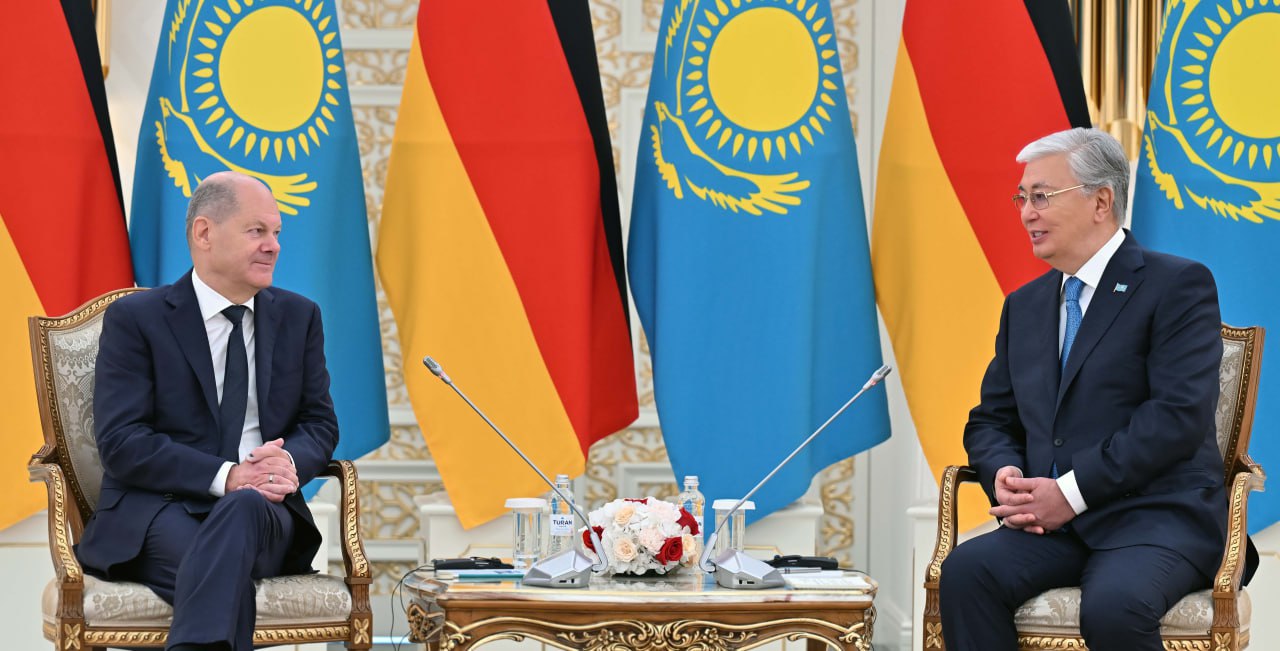
Scholz and Tokayev during their tet-a-tete meeting in Astana. Photo credit: akorda.kz
The strategic partnership is reflected in the growing frequency of high-level visits. Federal President Frank-Walter Steinmeier paid an official visit to Kazakhstan in June 2023, followed by Tokayev’s state visit to Germany three months later. Both visits resulted in the signing of multiple agreements in priority areas of cooperation.
Scholz’s visit followed the move. The business forum in Astana concluded with the signing of 36 documents worth a staggering $6.3 billion.
Trade and investments
Germany is Kazakhstan’s key trade and investment partner. According to the Bureau of National Statistics of Kazakhstan, in 2023, bilateral trade reached $3.9 billion, with exports standing just at $740.9 million. This is a substantial increase from $2.8 billion in 2022
In seven months of 2024, trade turnover grew 13%, hitting $2.3 billion.
Germany is a leading investor in the Kazakh economy. Since 1992, Germany has invested more than $6.6 billion in the Kazakh economy. In 2023, German investments reached $770 million. More than 90% of these investments are channeled into non-resource sectors.
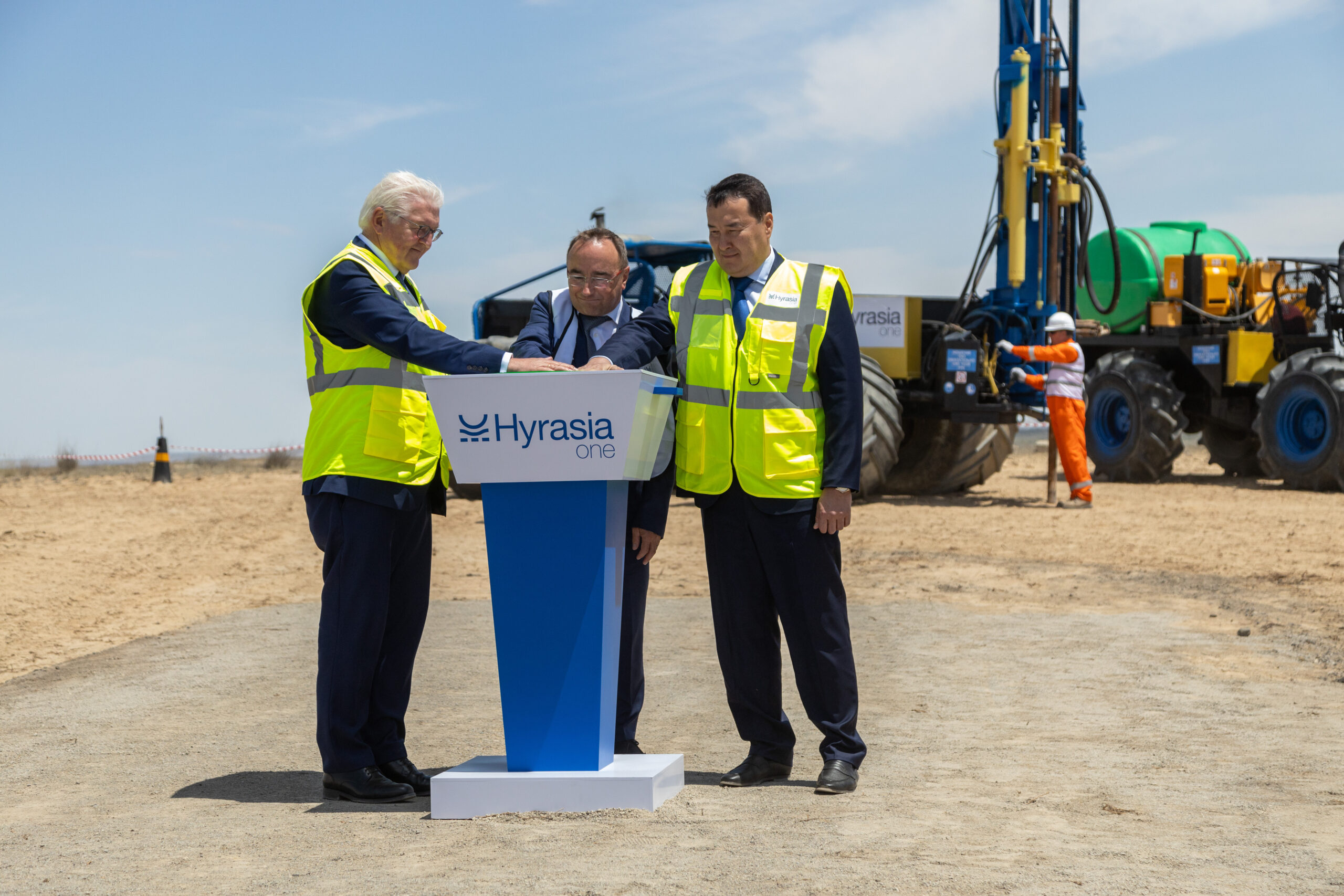
During Frank-Walter Steinmeier’s visit to Kazakhstan in June 2023, pre-FEED started with the first geological drillings at the green hydrogen plant, a major German investment in Kazakhstan. The plant is constructed by the German-Swedish Svevind company. Photo credit: hyrasia.one
Nearly 752 companies with German capital operate in Kazakhstan.
According to the Kazakh Invest national company, the pool of Kazakh-German investment projects consists of 66 projects worth more than $54.9 billion, including 32 completed projects worth $1.1 billion.
What does Kazakhstan pursue?
Economic cooperation between Kazakhstan and Germany has been robust, but this visit signals a new phase. Scholz and Tokayev discussed enhancing trade relations, and both sides are looking to diversify their economic cooperation.
According to Erbulat Seilekhanov, a chief research fellow at the Kazakhstan Institute of Strategic Studies, Kazakhstan pursues several objectives in its relations with Germany.
“For Kazakhstan, which accounts for 83% of Germany’s trade with Central Asia, the key objectives remain expanding trade and economic ties, increasing the quality and volume of investment and financial activities by German companies in the country, securing Kazakhstan’s products in the German market, and deepening partnerships in scientific, technical, and educational spheres,” Seilekhanov said in a written comment for The Astana Times.
Seilekhanov sees the results of the bilateral talks in Astana as a strong signal of commitment from both sides to “elevating the relationship to a qualitatively new level.”
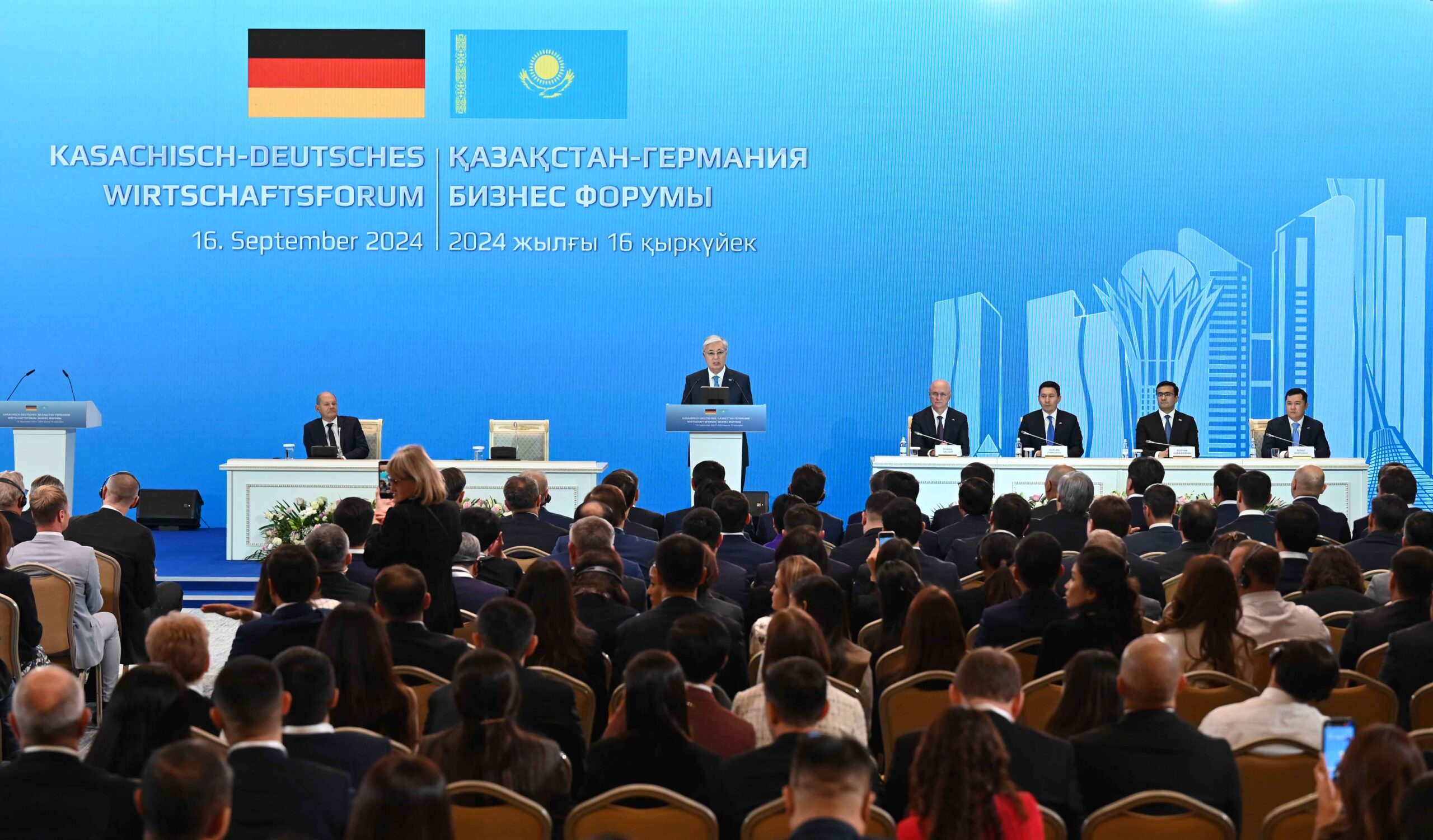
The business forum in Astana convened top German executives. Photo credit: akorda.kz
Valeriy Sitenko, a senior expert of the Analysis and Forecasting Group at the Institute of Foreign Policy Research, echoes Seilekhanov, stressing Scholz’s visit aimed to deepen economic ties and specify concrete areas of cooperation.
“The priorities, of course, lie in the economic sphere. This area is also a priority for Germany, especially given the geopolitical situation and the disruption of traditional supply chains. (…) What is happening in the world right now—especially the war—does not only affect Europe, it impacts the entire world. Therefore, our countries are naturally interested in advancing the economic agenda of our cooperation. Once again, this includes energy, transport, investment, innovation, the green agenda, and rare earth metals, including the construction of a lithium processing plant in eastern Kazakhstan,” Sitenko told The Astana Times.
He suggested Scholz’s visit demonstrates this partnership is multi-faceted, one that covers multiple areas of cooperation, from energy and technology to security and political dialogue.
“Our relations have already, in a way, officially reached the level of a strategic partnership, and this speaks for itself. A strategic partnership implies cooperation in all areas—economic, political, cultural, and educational. We can see all of this in this visit,” said Sitenko.
Key deals
Among the key results, Seilekhanov emphasized the agreements signed with German financial institutions to finance investment projects in Kazakhstan.
Specifically, the Development Bank of Kazakhstan (DBK), part of the Baiterek holding, signed three pivotal agreements with leading German financial institutions: Deutsche Bank, Landesbank Baden-Württemberg (LBBW), and KFW IPEX-Bank.
The first agreement is a mandate letter from Deutsche Bank for up to $200 million, intended to finance investment projects in Kazakhstan. Additionally, the DBK signed two framework agreements: one with LBBW for 100 million euros to finance export transactions backed by credit agencies and another with KFW IPEX-Bank for 100 million euros, aimed at supporting infrastructure and industrial projects in Kazakhstan.
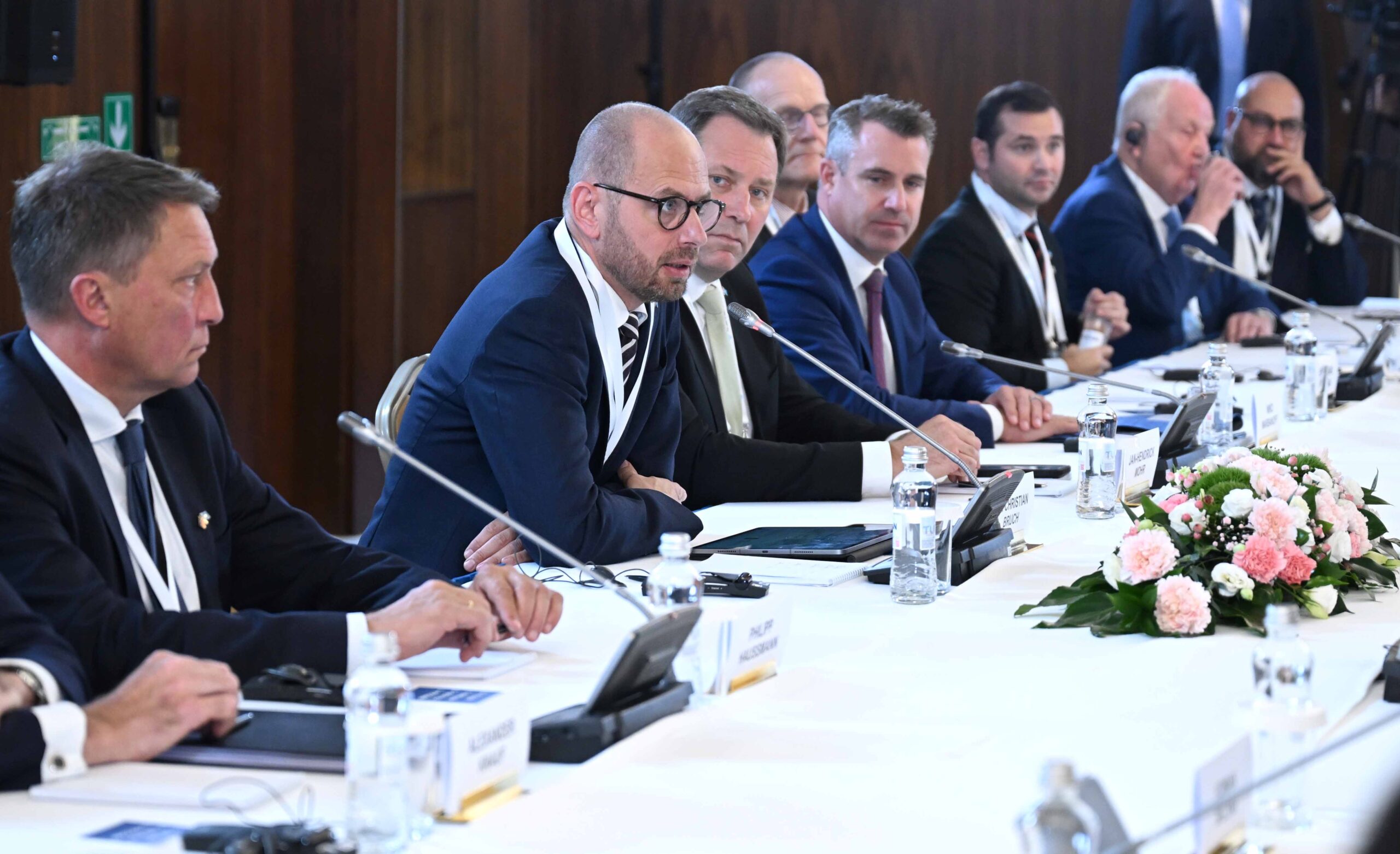
Besides the forum, Tokayev met with German business leaders in a separate meeting. Photo credit: akorda.kz
He also stressed the importance of agreements to establish the Kazakh-German Institute of Science and Technology at Serikbayev East Kazakhstan State Technical University, open a Kazakh-German school, and collaboration between the German association Bitkom e.V. and Kazakh IT companies on joint digital technology projects.
“Overall, Chancellor Olaf Scholz’s current visit to Kazakhstan offers promising prospects for further expanding cooperation and deepening mutual understanding,” said Seilekhanov. “Notably, Kazakhstan has also secured Berlin’s support in easing the EU visa regime for Kazakh citizens.”
The situation which cannot be ignored
The war in Ukraine was not officially on the agenda, but it loomed large over the discussions. President Tokayev commented on the issue during his meeting with Scholz at the request of the German Chancellor.
Reflecting on this statement, Sitenko said it is “impossible” to ignore this topic.
“Our relations already have a well-established and solid foundation. However, the situation is changing. Of course, it is impossible to ignore the issue of Ukraine, and our President has expressed Kazakhstan’s position, which is that this war needs to end. It benefits no one and only brings problems to the entire world, so an agreement must be reached. This aligns with Kazakhstan’s multi-vector foreign policy and our peace-loving approach to developing relations with all countries. We are ready to foster cooperation with all nations,” said Sitenko.
He recalled Kazakhstan’s earlier proposals to act as a mediator.
“From the very beginning of the war, Kazakhstan has offered its assistance in resolving the conflict, considering its multi-vector policy and good relations with Russia, Ukraine, and EU countries. I believe Chancellor Scholz also took note of Kazakhstan’s position, especially since it leans toward the necessity of negotiating. Scholz is now advocating for Russia’s presence at the next peace summit on Ukraine. In Germany, they also understand that this war needs to end, and negotiations must happen somehow,” said the expert.
Seilekhanov also said the ongoing confrontation between East and West might present a challenge for bilateral ties, particularly due to the Western sanctions against Russia. However, he expects that with the trust-based relationship and strategic partnership between Astana and Berlin, “there is hope that Kazakhstan and Germany will find mutually acceptable solutions.”
EU strategy for Central Asia
According to Sitenko, Germany’s engagement with Central Asia should also be seen in the broader context of the EU strategy in the region. He believes Scholz’s visit is part of this broader European strategy to strengthen ties with Central Asia amid the geopolitical reconfiguration.
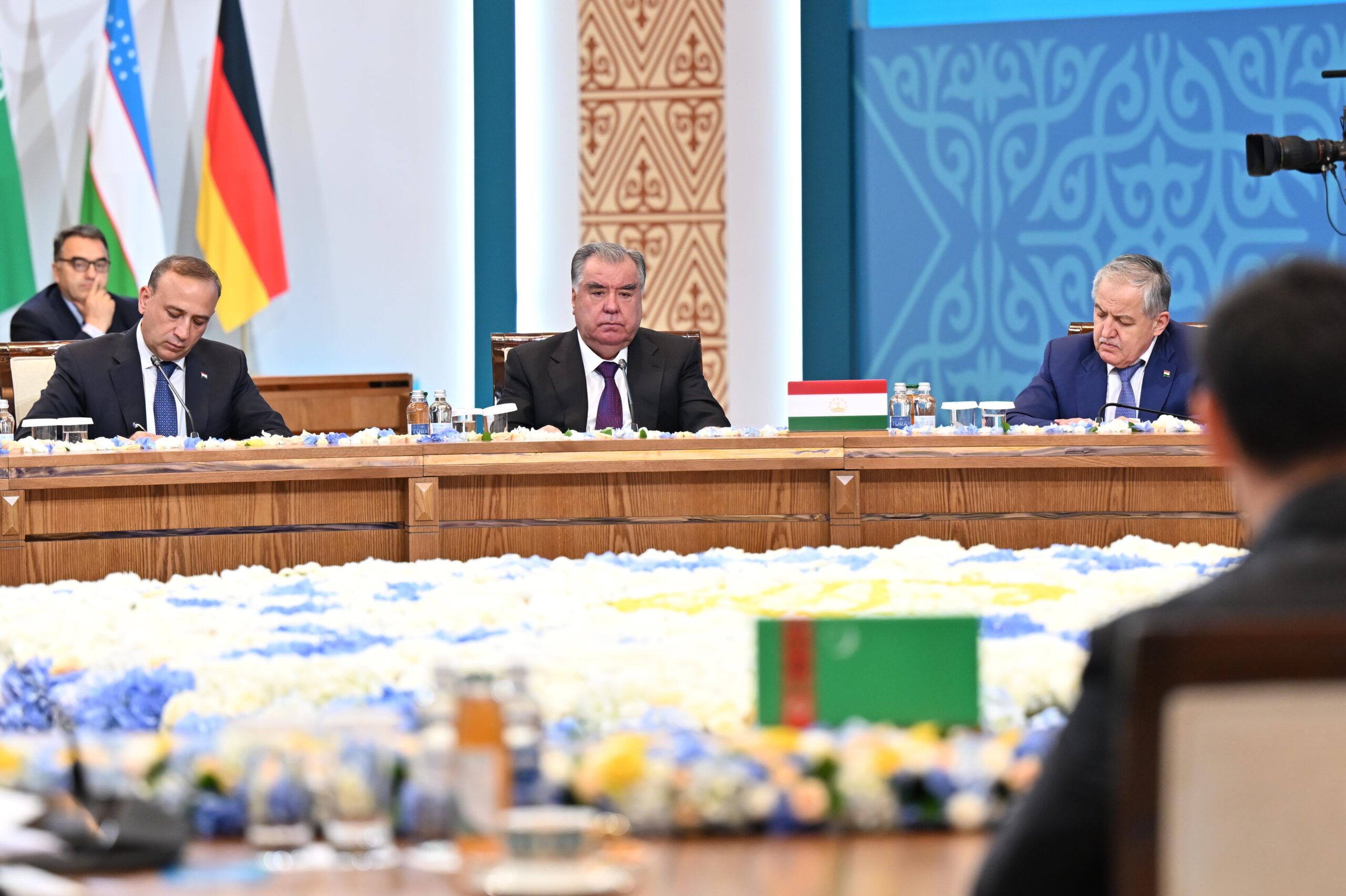
Scholz’s visit also included a summit in C5+1 format with Central Asian leaders. The first summit in this format took place in Berlin in September 2023. Photo credit: akorda.kz
“Germany is not only one of the initiators of the C5+1 format, but it was also one of the initiators of the very first EU strategy for Central Asia. This strategy was adopted in 2007 at Germany’s initiative and was later updated in 2019,” said Sitenko, mentioning the ongoing discussions on the need to update the 2019 strategy.
Germany’s motivations
Commenting on Germany’s main geopolitical motivations driving what seems to be a “renewed” focus on Kazakhstan and Central Asia, Dr. Stefan Meister, head of the Center for Order and Governance in Eastern Europe, Russia and Central Asia at the German Council on Foreign Relations, said it has to do with the war in Ukraine.
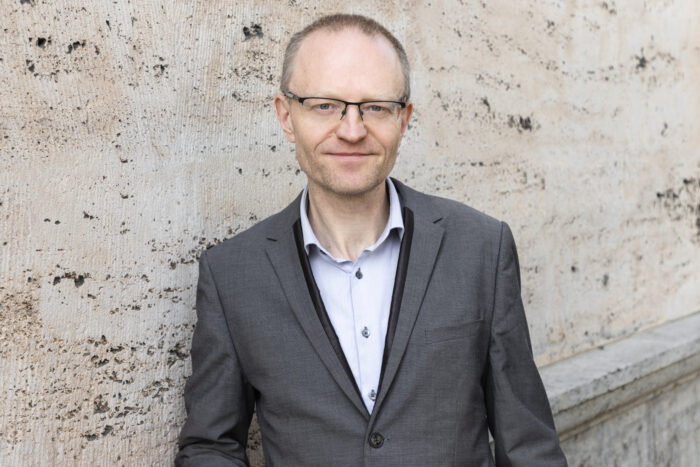
Stefan Meister. Photo credit: dgap.org
“Germany wants to diversify its supply of oil, gas and resources away from Russia, it is searching for alternative transit routes to Asia circumventing Russia and it wants to strengthen partnership with countries in Central Asia and other regions on topics like security, migration and energy,” Meister told The Astana Times.
For Germany, it is not only about getting resources from Kazakhstan but also about “supporting the country in terms of connectivity and energy transition and benefiting from the huge renewable and green hydrogen potential.”
“We will have to see how sustainable it is or if it is more rhetoric with relatively limited action and investment. (…) Germany can supply technology. It has an interest to deepen relations also in other economic areas but Kazakhstan would also need to have the interest to work on this energy transition, more regional cooperation and connectivity with Europe,” said the expert.
While he sees huge potential and opportunities, he also emphasized the importance of “political will and the ability for investment to bring the relations really on a different level.”
Weighing Central Asia’s engagements with other foreign partners, Meister said there is an “inflation” in C5+1 formats, saying one should look closer into the actual dynamics.
“My impression is that from the U.S. side, it is more about Russia than about Central Asia. From the EU side, it seems to be not a priority for von der Leyen, the head of the commission,” said Meister.
Meister sees Germany’s distinct focus on Central Asia compared to other external actors.
“There is a huge interest by the German economy to be more present in the region, if they really have the political support. I think Germany will support more regional cooperation and connectivity with Europe. But for this, it will also need cooperation within the EU and funding from European and international banks,” he said.
